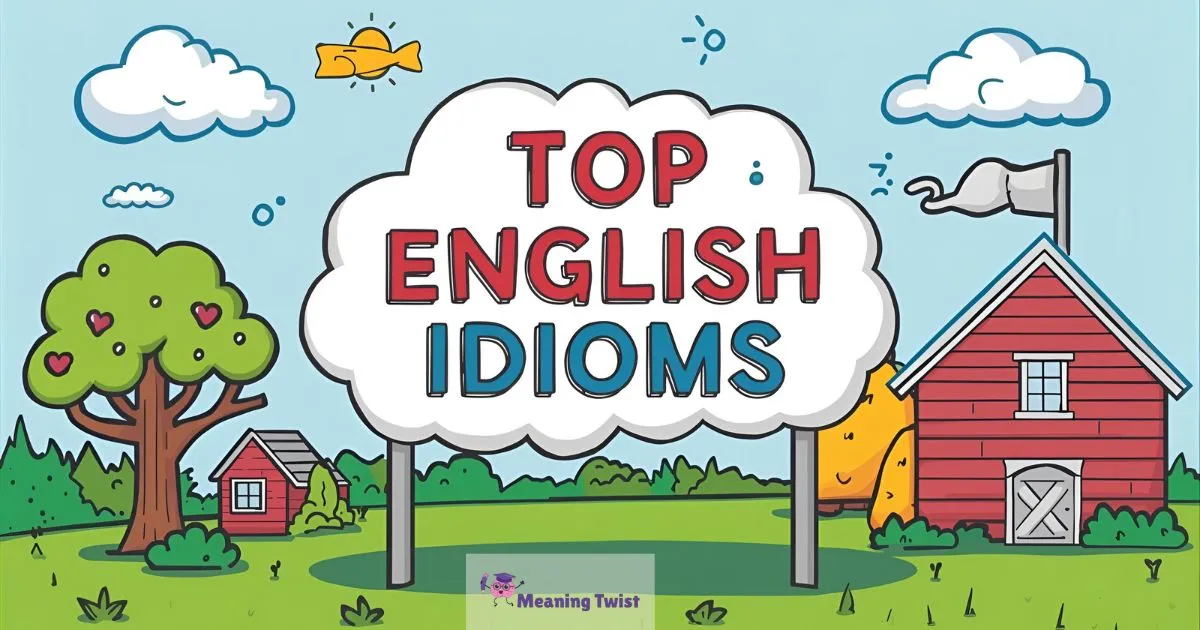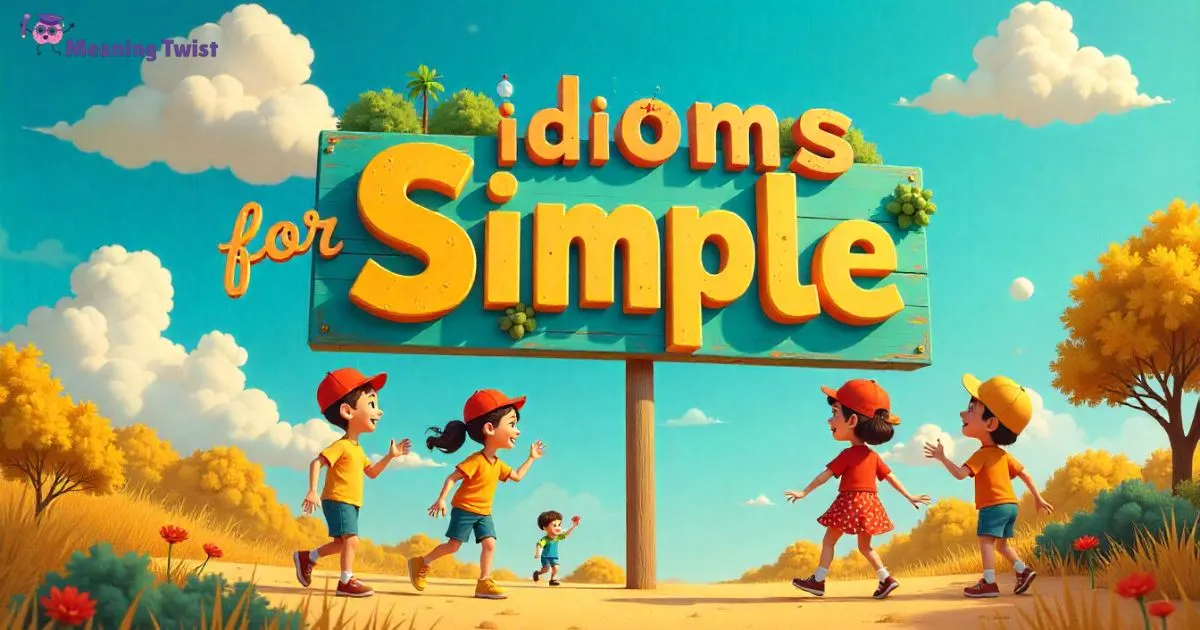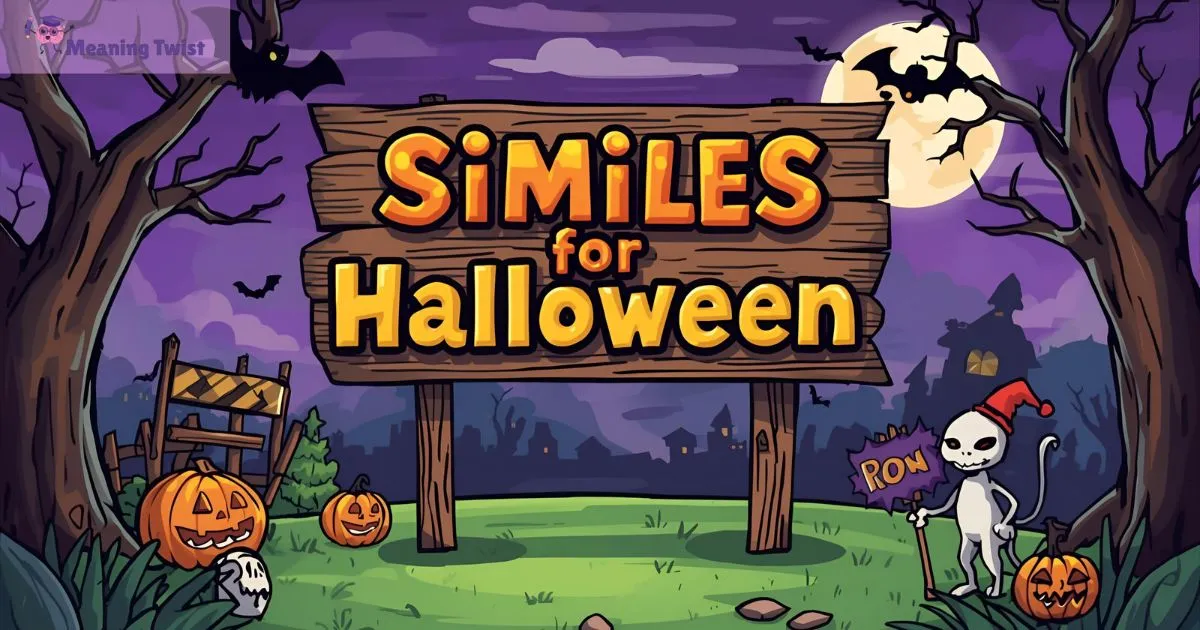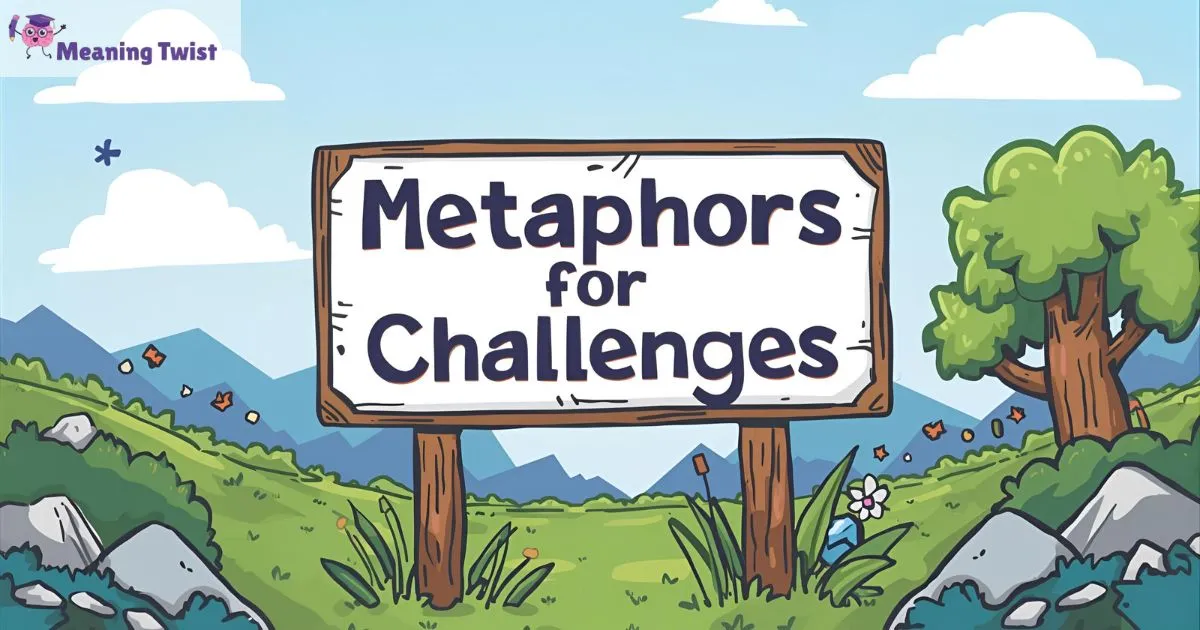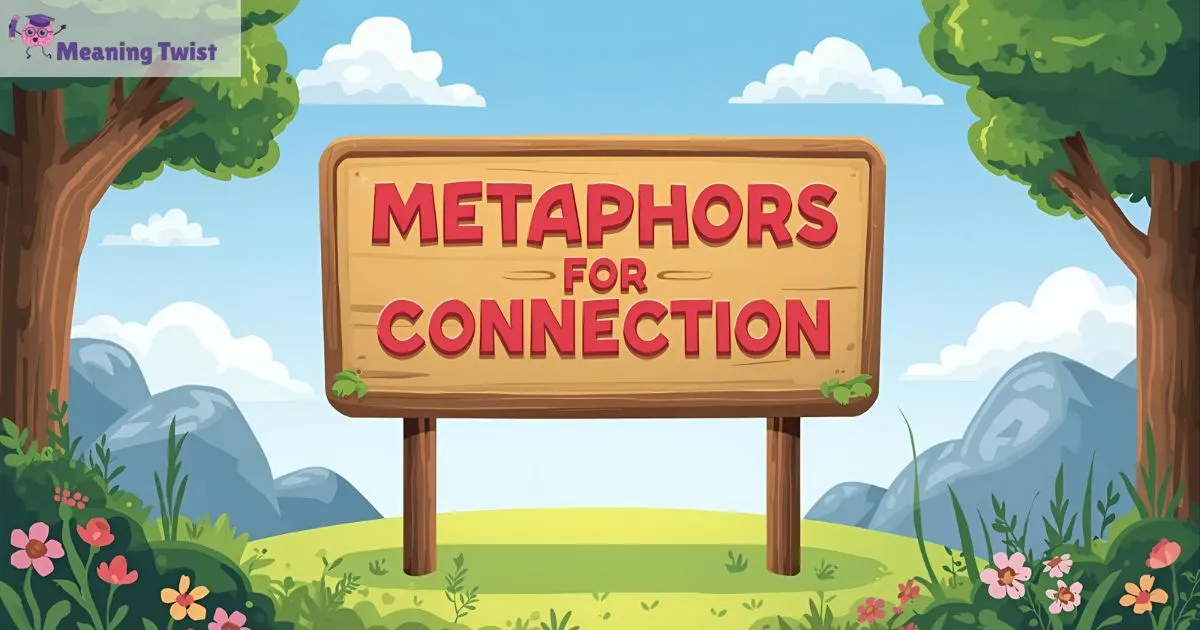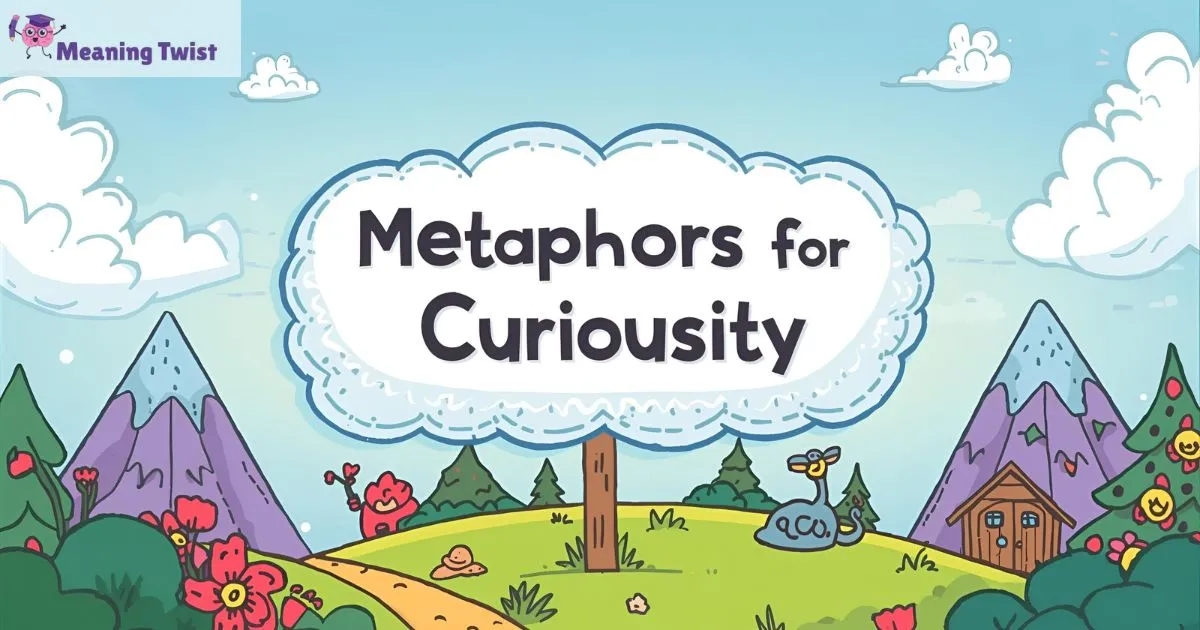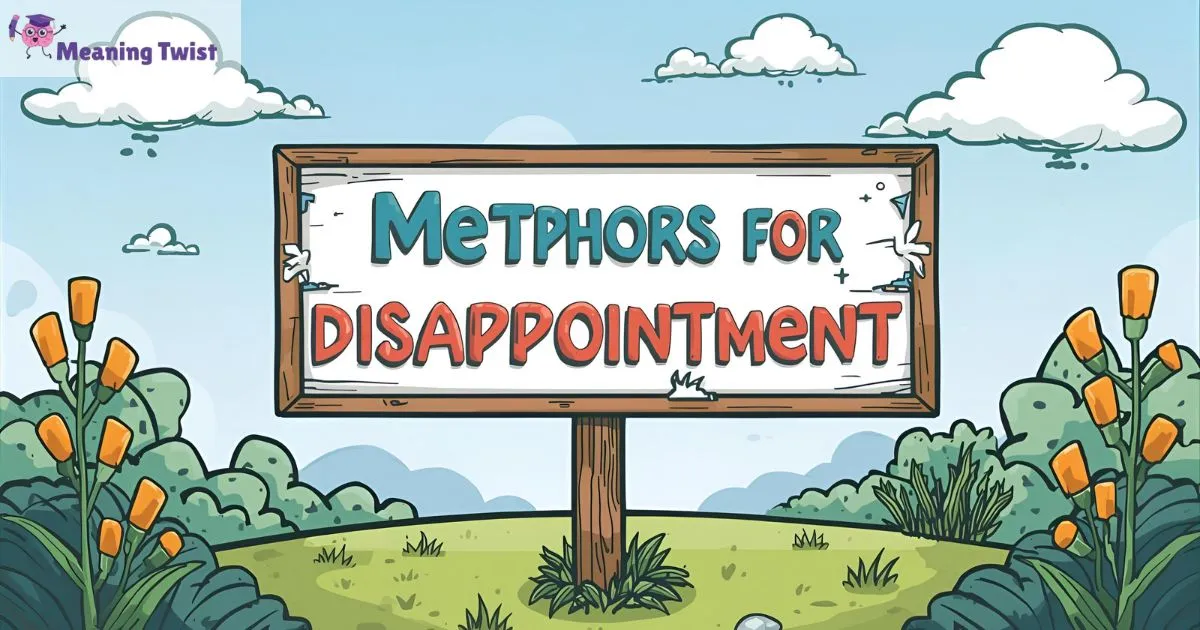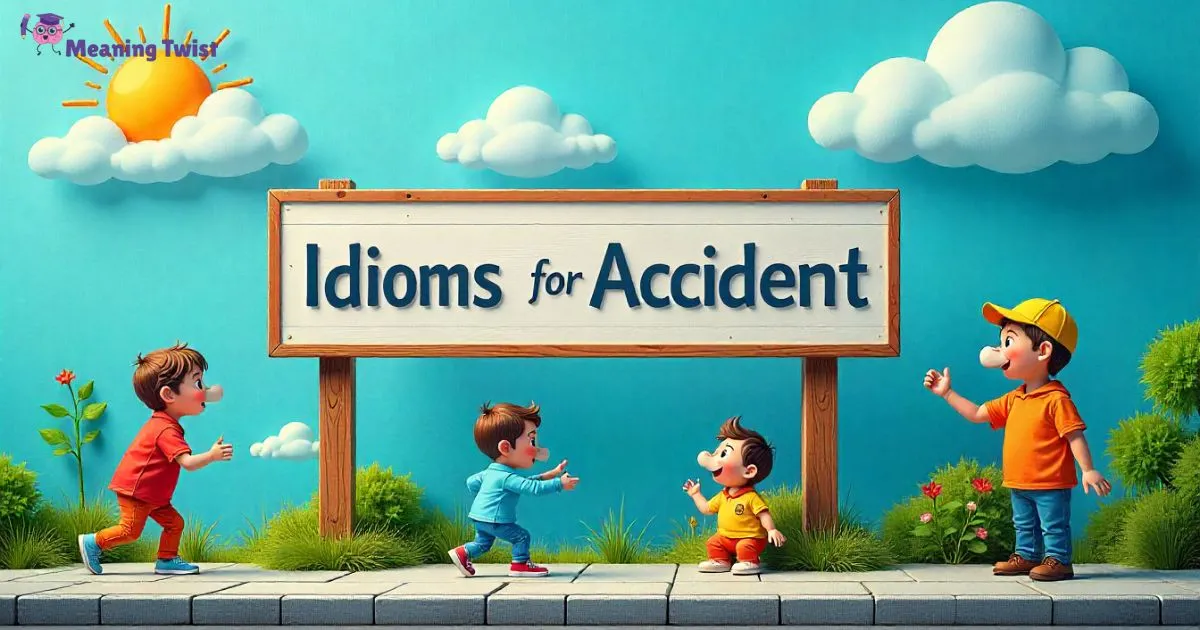
Accidents are a part of life, and sometimes they teach us lessons in unexpected ways. Using idioms for accident makes describing mishaps or unforeseen events fun, vivid, and memorable. Instead of just saying “I had an accident,” you can use expressions like “slip up”, “hit a snag”, or “go south” to convey not just the event, but the context, emotion, and learning behind it.
Idioms for accidents help express reactions, consequences, and lessons naturally. They make your language engaging, relatable, and human, helping readers or listeners connect with your story, whether it’s a small slip, a work-related mishap, or an unexpected incident.
By learning and using these idioms creatively, you can share experiences with humor, insight, and clarity, turning everyday accidents into interesting anecdotes that are both memorable and actionable.
1. Slip Up
Meaning: Make a mistake or error accidentally.
Scenario: Work, studies, or personal tasks.
Tip: Use casually to describe small errors.
Real-life Example: During my presentation, I slipped up and read the wrong slide numbers. Instead of panicking, I laughed and corrected myself, which made the session more engaging and relatable to the audience.
2. Hit a Snag
Meaning: Encounter an unexpected problem.
Scenario: Projects, plans, or travel.
Tip: Use when describing obstacles.
Real-life Example: While planning a birthday party, we hit a snag when the bakery canceled our cake order. We quickly found a new bakery, and the party went smoothly.
3. Go South
Meaning: Something goes wrong or fails unexpectedly.
Scenario: Business, events, or personal plans.
Tip: Use informally for failures or accidents.
Real-life Example: Our weekend hiking trip went south when sudden rain flooded the trails. We had to find shelter, but the experience turned into an impromptu adventure.
4. Drop the Ball
Meaning: Make a careless mistake or miss an important task.
Scenario: Work, school, or personal responsibilities.
Tip: Use to acknowledge mistakes.
Real-life Example: I dropped the ball on submitting my tax documents on time, which caused extra paperwork and stress. Learning from it, I set reminders for the future.
5. Backfire
Meaning: An action leads to the opposite of the intended result.
Scenario: Plans, experiments, or strategies.
Tip: Use for unintentional consequences.
Real-life Example: My attempt to surprise my team with a last-minute team-building activity backfired when half the group couldn’t attend, but it taught me to plan ahead next time.
6. Run into Trouble
Meaning: Encounter difficulties unexpectedly.
Scenario: Travel, work, or social situations.
Tip: Use for general mishaps.
Real-life Example: During the road trip, we ran into trouble when our car broke down in the middle of nowhere. It became an opportunity to bond and learn basic car maintenance together.
7. Hit the Deck
Meaning: Fall or duck quickly, often in accidents or emergencies.
Scenario: Physical accidents or sudden hazards.
Tip: Use literally or figuratively for sudden mishaps.
Real-life Example: While helping move furniture, I slipped and hit the deck hard. Although I bruised my arm, it reminded me to always take safety precautions.
8. Have a Slip
Meaning: Physically fall or make a small mistake.
Scenario: Walking, work, or minor accidents.
Tip: Use casually for minor errors.
Real-life Example: I had a slip on the wet floor in the office. Luckily, no one was hurt, and it encouraged the management to place warning signs promptly.
9. Bite the Dust
Meaning: Fail or be defeated, sometimes by accident.
Scenario: Sports, games, or plans.
Tip: Use figuratively for failures or accidents.
Real-life Example: Our small startup idea initially bit the dust due to technical glitches. Learning from it, we relaunched a better version that gained traction quickly.
10. Take a Spill
Meaning: Fall or trip accidentally.
Scenario: Physical accidents or clumsy moments.
Tip: Use casually or humorously.
Real-life Example: While jogging in the park, I took a spill on a muddy patch. Though I got dirty, laughing at it with friends made it a memorable experience.
11. Miss the Mark
Meaning: Fail to achieve the intended goal.
Scenario: Work, projects, or personal targets.
Tip: Use metaphorically or literally.
Real-life Example: My first attempt at baking a cake missed the mark — it was too dry. However, experimenting taught me new techniques that improved my skills dramatically.
12. Go Up in Smoke
Meaning: Plans or efforts fail unexpectedly.
Scenario: Projects, events, or personal endeavors.
Tip: Use figuratively for total failures.
Real-life Example: Our camping trip plans went up in smoke when the campsite was unexpectedly closed. We improvised by exploring nearby trails, making the day unexpectedly enjoyable.
13. Hit the Fan
Meaning: A situation suddenly becomes chaotic or problematic.
Scenario: Work, social issues, or emergencies.
Tip: Use informally for dramatic mishaps.
Real-life Example: When the office fire alarm went off, things hit the fan with everyone evacuating in panic. Thankfully, it was just a drill, and we laughed about the chaos afterward.
14. Fall Flat
Meaning: Fail completely, especially in attempts to impress or succeed.
Scenario: Public speaking, jokes, or plans.
Tip: Use for humor or social mishaps.
Real-life Example: My attempt at telling a joke during the team meeting fell flat, but it lightened the mood when I admitted it and laughed along with everyone.
15. Go Awry
Meaning: Go wrong or not as planned.
Scenario: Projects, events, or life situations.
Tip: Use for general accidents or misadventures.
Real-life Example: The surprise party plans went awry when the guest of honor had to work late. We adapted by having a virtual celebration, keeping the fun intact.
16. Take a Tumble
Meaning: Fall or stumble accidentally.
Scenario: Physical accidents or slips.
Tip: Use for casual, physical mishaps.
Real-life Example: While hiking on a rocky path, I took a tumble and scraped my knee. Though painful, it reminded me to wear proper shoes and stay alert in tricky terrains.
17. Have a Mishap
Meaning: Experience an unexpected problem or minor accident.
Scenario: Travel, work, or home situations.
Tip: Use casually to describe minor setbacks.
Real-life Example: While cooking dinner for guests, I had a mishap with the sauce spilling everywhere. We cleaned up and laughed, turning a potential disaster into a fun memory.
18. Hit the Wall
Meaning: Encounter a sudden obstacle or limitation.
Scenario: Work, studies, or physical activities.
Tip: Use for fatigue, obstacles, or accidents.
Real-life Example: During marathon training, I hit the wall around the 20th mile. Pushing through taught me the importance of pacing and preparation.
19. Drop Something Like a Hot Potato
Meaning: Accidentally or hastily let go of something.
Scenario: Physical accidents or sudden situations.
Tip: Use humorously in casual conversation.
Real-life Example: While carrying groceries, I dropped the bag like a hot potato when the handle broke. Everyone laughed, and we quickly salvaged what we could.
20. Spill the Beans (Unexpectedly)
Meaning: Accidentally reveal a secret or surprise.
Scenario: Social, work, or personal contexts.
Tip: Use for accidental disclosures.
Real-life Example: I accidentally spilled the beans about the surprise party while chatting with the guest of honor. Though it ruined the surprise, it still brought laughter and excitement to everyone involved.
21. Knock Over
Meaning: Accidentally tip or push something down.
Scenario: Home, work, or outdoor settings.
Tip: Use literally for physical accidents.
Real-life Example: While rearranging books on the shelf, I knocked over a stack accidentally. Thankfully, nothing broke, and it reminded me to handle items carefully.
22. Blow It
Meaning: Ruin a chance or opportunity unintentionally.
Scenario: Work, interviews, or personal chances.
Tip: Use informally for mistakes or accidents.
Real-life Example: I blew it during the job interview by forgetting a key question. It was disappointing, but it motivated me to prepare better for the next opportunity.
23. Run Amok
Meaning: Go out of control or create chaos accidentally.
Scenario: Events, machines, or people.
Tip: Use figuratively for chaotic situations.
Real-life Example: During the office party, the balloons ran amok when the ceiling fan was turned on, creating chaos and laughter among colleagues.
24. Go Off the Rails
Meaning: Deviate from a plan or behave unpredictably.
Scenario: Work, personal life, or events.
Tip: Use figuratively for accidents or mishaps.
Real-life Example: Our carefully planned picnic went off the rails when it started raining heavily. We moved under a gazebo and made the best of it, turning a potential disaster into a cozy gathering.
25. Fall Through
Meaning: Plans or arrangements fail unexpectedly.
Scenario: Projects, travel, or social plans.
Tip: Use for professional or personal setbacks.
Real-life Example: The sponsorship deal for our charity event fell through at the last minute. We quickly found alternative support, saving the event and learning to plan backups.
26. Go Up in Flames
Meaning: Fail spectacularly, often suddenly.
Scenario: Projects, cooking, or experiments.
Tip: Use figuratively for dramatic accidents.
Real-life Example: My attempt at baking a soufflé went up in flames when I misread the recipe. Though it failed, it taught me precision and patience in cooking.
27. Take a Hard Knock
Meaning: Experience a sudden setback or accident.
Scenario: Work, sports, or personal life.
Tip: Use for serious but figurative or literal incidents.
Real-life Example: When our startup lost a major client unexpectedly, it was a hard knock. We reassessed strategies, adapted quickly, and bounced back stronger.
28. Blow Up in One’s Face
Meaning: A plan or action fails disastrously.
Scenario: Work, social plans, or experiments.
Tip: Use figuratively for sudden failures.
Real-life Example: My attempt to fix the office printer without reading instructions blew up in my face, leaving us all laughing while I learned the proper steps.
29. Trip Up
Meaning: Make a mistake or stumble accidentally.
Scenario: Work, sports, or physical accidents.
Tip: Use casually for minor mishaps.
Real-life Example: I tripped up during my speech at the community meeting. I paused, smiled, and continued, which made the presentation more authentic and relatable.
30. Throw a Wrench in the Works
Meaning: Accidentally cause disruption or problems.
Scenario: Projects, events, or plans.
Tip: Use figuratively for interference or mishaps.
Real-life Example: The sudden software crash threw a wrench in the works during our online conference. We adapted quickly, switching to backup systems, and the event continued smoothly.
Key Insight about Idioms for Accident
1. Which idioms describe minor physical accidents?
Idioms like “take a spill,” “take a tumble,” “trip up,” and “hit the deck” describe small physical accidents effectively.
2. Which idioms convey unexpected mishaps in plans?
“Hit a snag,” “fall through,” “go south,” and “throw a wrench in the works” express unforeseen issues or disruptions.
3. Which idioms show mistakes or errors?
“Slip up,” “drop the ball,” “blow it,” and “miss the mark” highlight accidental mistakes or failures.
4. Which idioms reflect chaotic or sudden accidents?
“Run amok,” “hit the fan,” “go off the rails,” and “blow up in one’s face” indicate chaos or accidents that happen quickly.
5. How do idioms for accidents make storytelling more engaging?
They make descriptions fun, relatable, and memorable, turning ordinary mishaps into vivid, human, and shareable experiences.
Conclusion
Accidents are part of life, and using idioms for accidents turns them into stories that are fun, relatable, and memorable. From “slip up” to “throw a wrench in the works,” these expressions capture the unpredictability, humor, and lessons behind mishaps.
Incorporating these idioms into your writing or conversation helps you share experiences with clarity, emotion, and relatability. They make your storytelling more human, engaging, and impactful, turning everyday accidents into learning moments and entertaining anecdotes. 🌟

Hi, I am Joey, the admin of meaningtwist.com. I simplify deep meanings and twist ordinary words into extraordinary insights to spark your curiosity and clicks!

